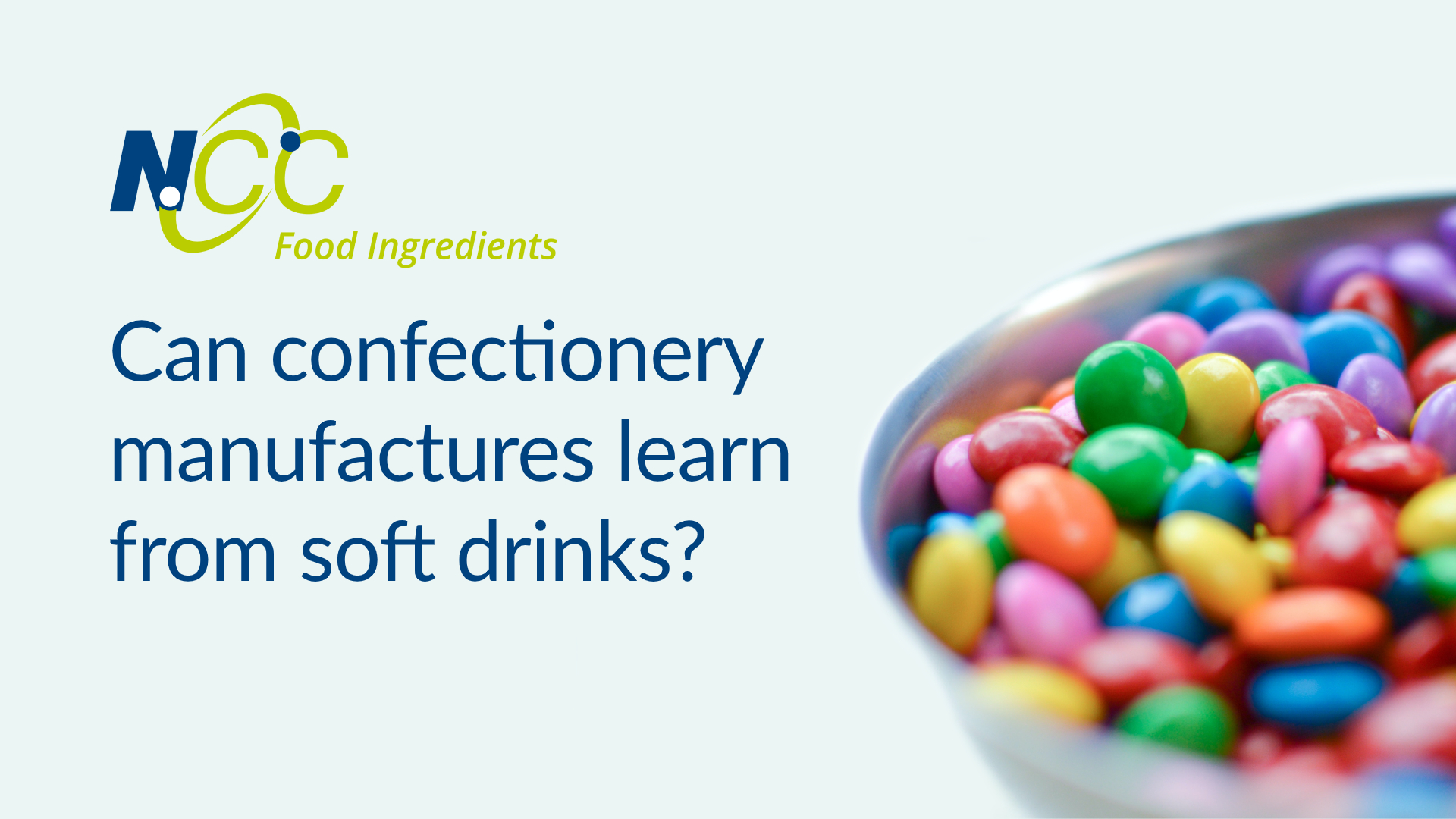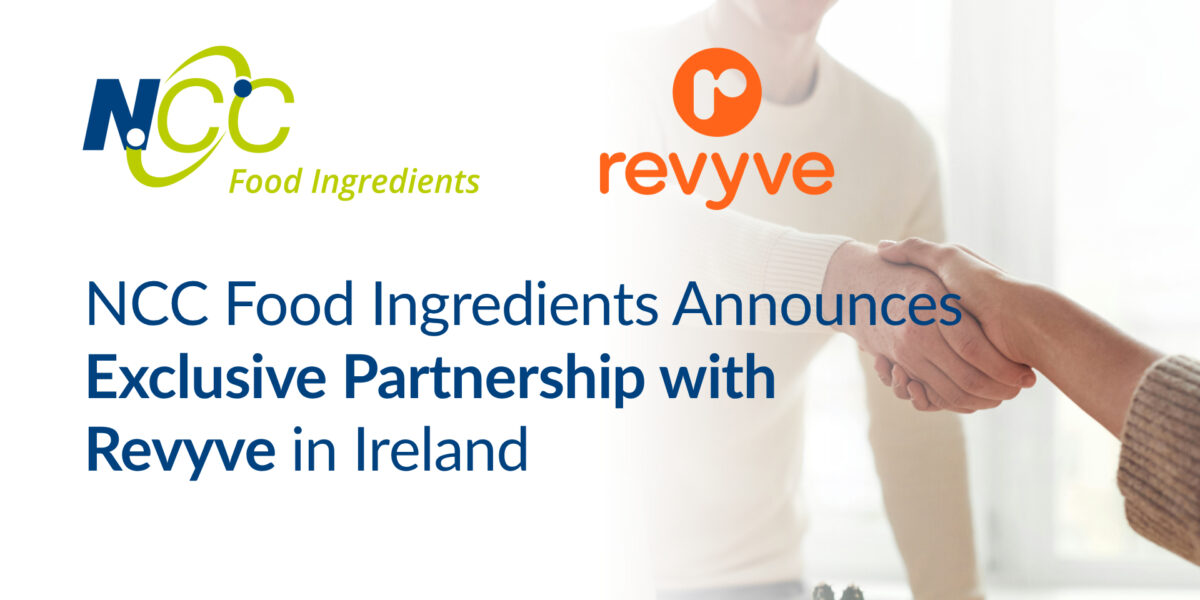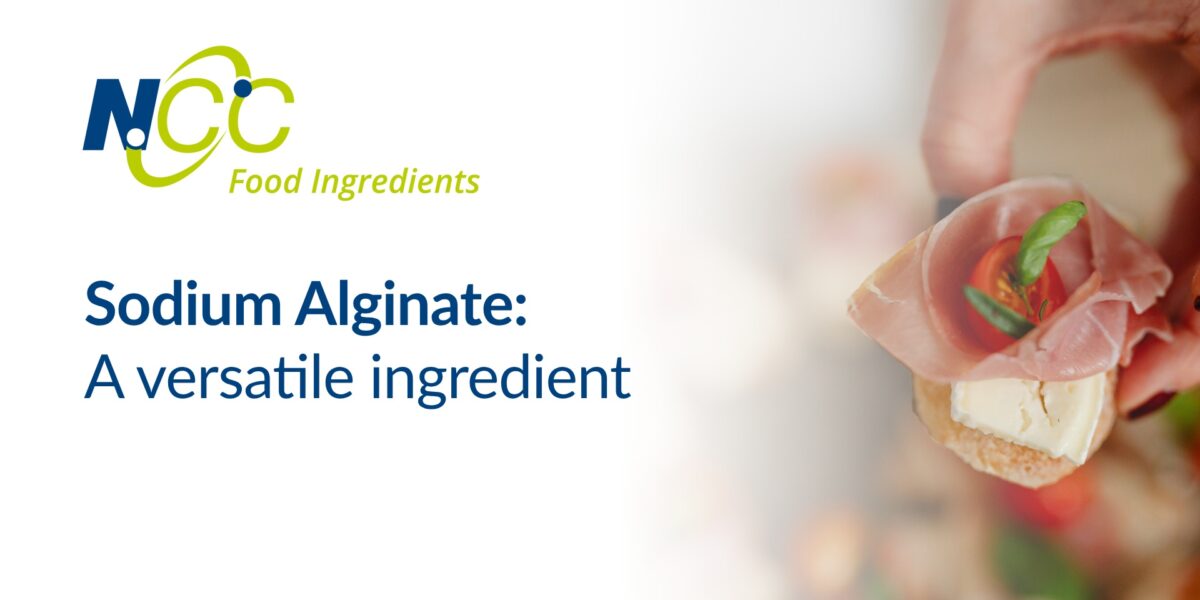Fintan McConnell, Product Manager, explores what the options are for confectionery manufactures.
In the last few years there has been increasing pressure placed on soft drink manufacturers to reformulate their products or to reduce the size of their packs. This has been mainly driven by higher taxation on soft drinks relating to their sugar content which in turn means that other products such as confectionery could be next. In fact part 1 of the UK National Food Strategy 2020 has already made moves to enforce a sugar reduction in food products such as confectionery. Many countries globally as well as the World Health Organisation have linked the intake of sugar to the rise of obesity in populations.
The driver – sugar taxation
When sugar taxation of soft drinks was rolled out to countries in Europe such as Ireland and the UK, many manufacturers chose to reduce the sugar in their products. This was done by reformulating their recipes and including either an artificial sweetener or natural sweetener such as stevia. Others like Coca-Cola opted to reduce the size of their standard serving products instead. Reducing the size of a 1.75 litre bottle to 1.5 litres in the UK. However, they have also taken steps to increase sales in their Coke portfolio, reformulating and relaunching Coca-Cola Zero. The new name for the product became Coca-Cola Zero Sugar, highlighting to consumers the updated product contains no sugar but tastes similar to original Coke.
Another approach
Schweppes UK and Ireland (owned by Coco-Cola) took another approach, reformulating their original tonic water and adding sweetener, sodium saccharin. Therefore, reducing the sugar in standard Schweppes tonic water. They then launched a new line of upmarket tonic water entitled Schweppes 1783. This range includes interesting and new flavour combinations but also includes a version of their classic tonic water, largely retaining the original recipe that is made with sugar and omitting other sweeteners. By taking this approach Schweppes effectively retained their original market whilst taking on new upmarket tonic disruptors such as Fever Tree.
Can confectionery manufactures learn from the soft drink industry?
It is clear that confectionery is next on the hitlist for taxation, with this in mind some confectionery manufactures have started to adapt in anticipation. Cadbury (owned by Mondelez) announced that they will be reducing the size of all of their chocolate bars sold in multipacks by the end of 2021. Louise Stigant, UK Managing Director, Mondelez International stated;
“We must play our part in tackling obesity and are committed to doing so without compromising on consumer choice”. However, they have faced considerable online public backlash as the price has remained the same, but the size portion has been reduced. In many ways it could be argued that soft drink manufacturers do have more choices in relation to reducing sugar, as reported in the Guardian; a chocolate insider told me,
Though this is clearly an over simplification of the challenges that the soft drink industry has, there is a valid point in that sugar in confectionery is used not just as a sweetener but as a bulking agent. Therefore, if sugar is reduced then something else has to take its place.
What are the options?
This then begs the question, what are the best options for confectionery manufactures to prepare for sugar taxation? Obviously, there are many factors at play such as what type of confectionery it is as well as the price point that the product is positioned at. Generally speaking, consumers of premium products are willing to pay more and do not want substitutes on quality. The majority of confectionery products on the market however, do not fall into this category, therefore this means that either a size reduction or a reformulation is the way forward. Fortunately, as regards to reformulation, there are options available. Naturally, it depends on the product in question, however one particularly great sugar replacement when it comes to confectionery is inulin.
For those who have never heard of inulin, it is a natural soluble dietary fibre that has scientifically proven health benefits. It is particularly useful in that it can be used across a full spectrum of food products to replace sugar and fat, so ideal for certain types of confectionery, chocolate for example. Other suitable sugar replacements that can be used in confectionery products is stevia. Though stevia is often associated with a bitter after taste, 2nd generation stevia is far more refined and lacks this negative side effect making it ideal as an ingredient.
If you’re a confectionery manufacture and are looking to reduce the sugar in your products, then we can assist. At NCC Food Ingredients we have assisted customers in the reformulation as well as the development of new confectionery products. Our experience and assistance have resulted in going above and beyond what our customers expected. Leading to strong sales and repeat orders. If you wish to know more, fill out the form below and we’ll be in touch.





